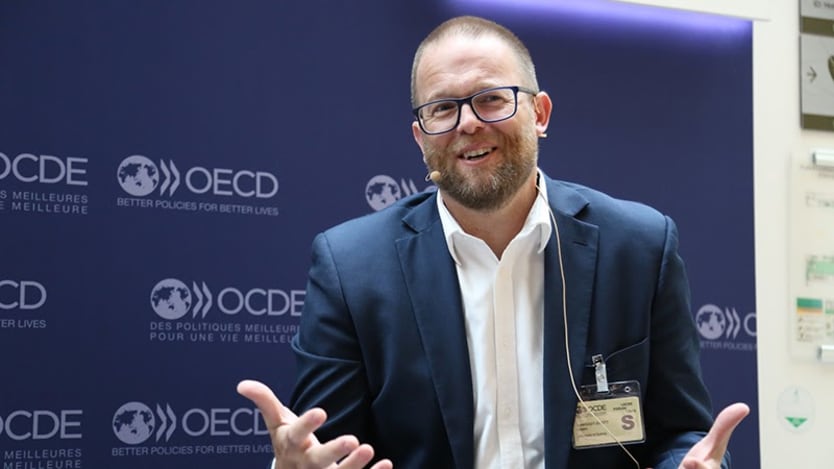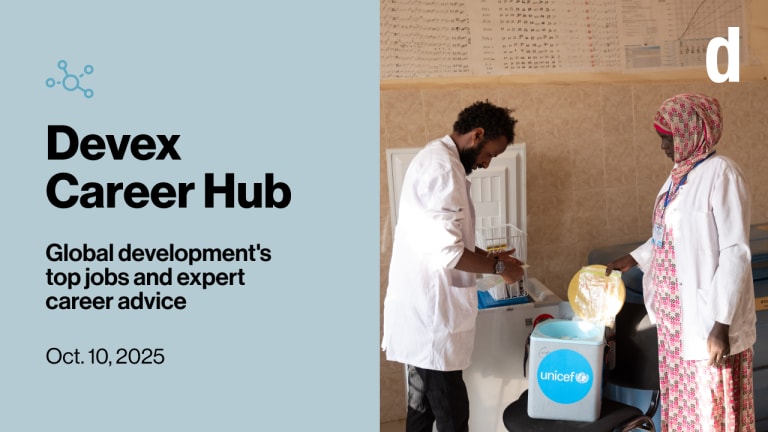
MANILA — As countries propose World Health Organization reforms this week at the resumed 73rd World Health Assembly, a network of global health security experts have called on them to double their flexible funding to the organization.
WHO’s budget has been reliant on voluntary contributions. But these donations are largely tied to specific programs and issues, leaving the organization little leeway to allocate and reallocate resources. The organization does receive flexible funding, mainly in the form of assessed contributions, but this only covers a very small percentage of the organization’s budget — at less than 20% of WHO’s total budget — a challenge that has plagued the organization for years.
This current financing set-up needs to change, said Adam Kamradt-Scott, director of the board at the Global Health Security Network, which launched the campaign #sustainWHO this week, calling for sustainable financing for the organization. He said a doubling of WHO’s assessed contributions is “well and truly overdue.”
“Senior WHO staff have been required to regularly hold ‘pledging conferences’ to replenish the funds, as there is currently no sustainable mechanism.”
— Adam Kamradt-Scott, board director, Global Health Security Network“The progressive, incremental change in WHO funding arrangements has led to a situation whereby almost 80% of its funding is voluntary, subject to the whims and political idiosyncrasies of changes of governments all around the world,” he told Devex via email.
Devex asked Kamradt-Scott about the network’s call to action, how it can be realized, and what it means for global health security.
This conversation has been lightly edited for length and clarity.
Why are you calling for a doubling of assessed contributions versus a call for a certain percentage increase?
Opinion: 5 ways to reform the World Health Organization
While WHO today remains the only truly democratic global health agency, it will have to undertake serious reforms if it wants to retain its legitimacy. This op-ed explores how to reform the institution.
A doubling of the assessed contributions provides the WHO with more sustainable financing. It is not about necessarily increasing the overall funding envelope to the WHO, although my personal belief is that this is warranted given the demands member states make of the organization, but it would instead change the current proportion of voluntary versus assessed contributions.
[Voluntary contributions] cannot be re-allocated. And voluntary funds can be withdrawn at any moment. While the WHO has been willing to receive voluntary contributions as they help advance global health, the WHO is prevented from re-tasking or re-purposing those funds to address other, more pressing global health priorities — such as responding to a pandemic.
By calling for a doubling the assessed contributions, we are hoping governments will commit to providing the WHO with a higher proportion of sustainable funding that cannot be arbitrarily canceled or withdrawn, and which can be re-purposed as needed — and as the founders of the organization envisaged via the constitution.
A certain percentage increase does not fundamentally alter the financing dynamics, which have become increasingly dysfunctional with approximately 80% of WHO funding being via voluntary contributions.
How are assessed contributions calculated at WHO?
Assessed contributions are calculated using a formula that takes into account the population size of the country and gross domestic product.
It is important to note, however, that the level of assessed contributions have not increased in real terms since the 1980s, when the United States led the push to freeze assessed contributions to UNESCO over concerns that the organization had been politicized. This policy was applied to all Unired Nations agencies, including the WHO. We believe it is time for this to end, and in order to counter the level of current dysfunction the current funding arrangements have generated, it is necessary to double the assessed contributions.
What steps are needed to increase assessed contributions by member states?
Given that member states collectively agreed to freeze assessed contributions, it would require a collective agreement to increase them.
What would be the implications of this for global health security?
The implications are profound. We have consistently seen, for example, that despite member states agreeing to create a replenishable $100 million health emergencies contingency fund in the wake of the West African Ebola outbreak that the WHO Health Emergencies Programme could draw down on to respond to health crises — such as the DRC Ebola outbreaks or the current pandemic — it has consistently struggled, and the fund has rarely exceeded $40 million at any one time.
As a result, senior WHO staff have been required to regularly hold “pledging conferences” to replenish the funds, as there is currently no sustainable mechanism. At times this has worked well. At other times, the WHO Health Emergencies Programme has been left wanting and has had to then resort to moral suasion to try and raise funds.
A doubling of the assessed contributions could see a proportion of those being diverted to replenishing the fund and/or funding the Health Emergencies Programme directly, to respond to health emergencies, so that countries get the help they need, when they need it, as soon as physically possible.
This contrasts with the current system whereby the WHO has to go cap-in-hand to member states begging for funds to help support an emergency response. We have seen this system play out since 2016, and it has been shown to be wanting. Doubling the assessed contributions allows a proportion of member states’ funding to be allocated to the Health Emergencies Programme. It would, in effect, create an insurance policy for governments — one that has been far more effective and responsive than the World Bank’s Pandemic Emergency Financing Facility.








